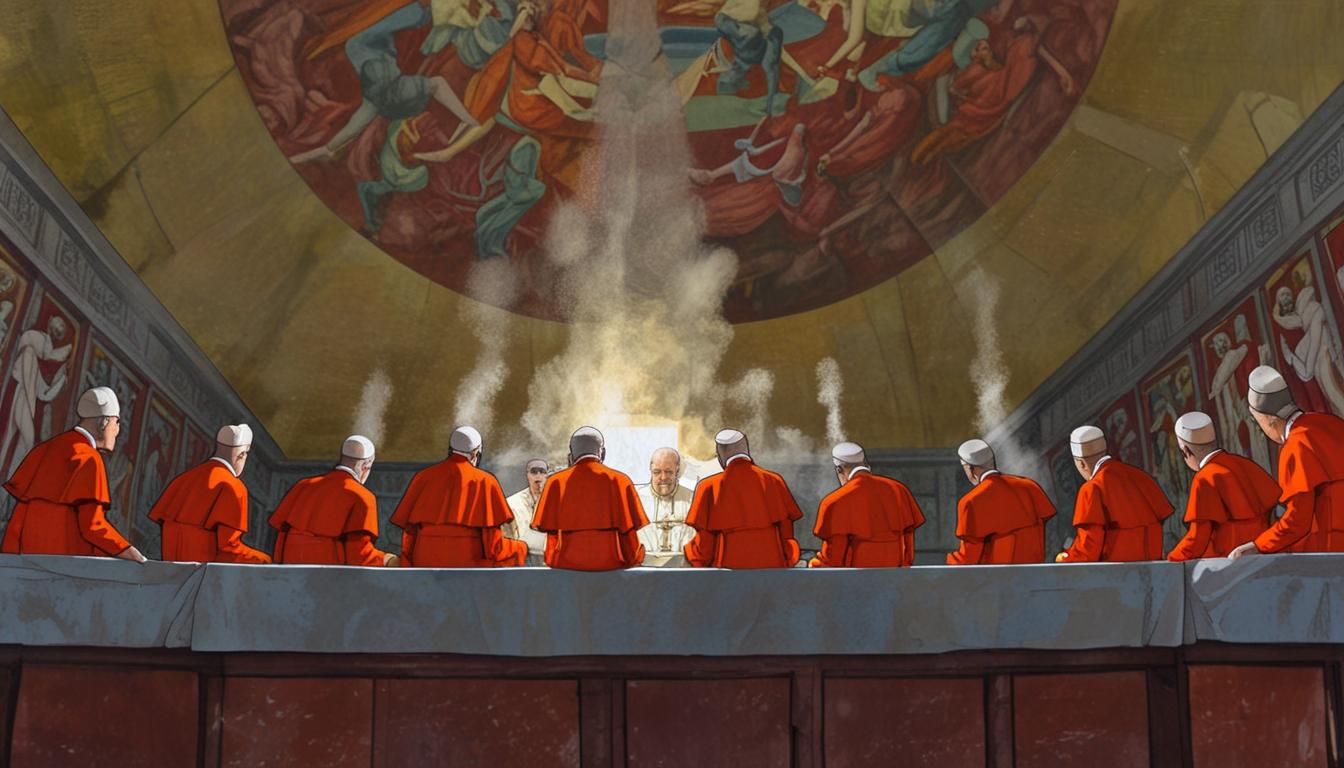Renowned British novelist Robert Harris has drawn fascinating parallels between the papal selection process, known as a conclave, and the popular television series, The Traitors. Speaking to the BBC ahead of the upcoming conclave for the election of a new Pope, Harris remarked that the dynamics observed in the reality show—where contestants identify "traitors" among them—reflect the secretive and often surprising nature of papal elections.
Harris, whose 2016 novel Conclave was adapted into an award-winning film, explained that during a conclave, a sudden consensus can emerge around a single candidate, similar to the way contestants in The Traitors may shift their allegiances. He stated, “Suddenly everyone swings to one person—you can't see why, particularly, but it happens.” Harris believes that this phenomenon is indicative of how conclaves operate, leading to unexpected results.
The Writer contends that the conclave serves as an effective model for leadership selection, suggesting that the ancient ceremony, rooted in secrecy, has successfully led to competent papal leaders over time. According to Harris, the method may be superior to the contemporary practices employed by political parties, which often engage wider memberships in leader selection. He elaborated, “Political parties throwing the election of their leaders open to the wider membership has not produced very good results,” arguing for a more restricted approach where a select group assesses candidates intimately over time.
The conclave is limited to male cardinals under the age of 80, and the decision-making process is characterised by strict privacy, culminating in the release of white smoke from a chimney atop the Sistine Chapel to announce the election outcome. Harris noted that locking the cardinals in and concentrating their minds has historically yielded capable popes. Reflecting on the process, he stated, “I didn’t come away from researching the novel thinking this is a terrible idea… In a way, the novel shows a conclave working.”
While Harris finds merit in the conclave's structure, he has expressed discomfort regarding the exclusion of women from the Catholic priesthood and the election of the Pope. He questioned, “Can any sophisticated religion, with such a huge following, really go on and on into the future with such a secondary, demeaning role for women?” He pointed out that a crucial character in his book, Sister Agnes, serves to incorporate the female perspective, illustrating the often invisible roles women play in the Vatican context. “I wanted to find some way of getting the female voice in this process,” he articulated, highlighting the contributions of women who manage logistical support for the cardinals during the conclave.
Harris also shared insights from his research, revealing that he was granted access to restricted areas of the Vatican, which provided a unique glimpse into the inner workings of papal elections. This experience allowed him to traverse corridors leading to the balcony where the new Pope addresses the public, a moment he described as breathtaking.
With the election of a new Pope on the horizon, Harris's observations invoke a contemporary discussion on governance and leadership selection, intersecting literature, reality television, and the traditions of the Catholic Church.
Source: Noah Wire Services
